
By Douglas Hileman, FSA, CRMA, CPEA
It’s Sustainability reporting season. Or is it Sustainability disclosure season? Or both? “Reporting” and “disclosure” are often used interchangeably. I suggest that both preparers and users of Sustainability information would be well-served if they understood the difference and did not conflate the two.
Capital markets are key users of Sustainability information; they are accustomed to “reporting” and “disclosure” of financial information. Many functions are involved in preparing and using financial information: Finance, Accounting, Controllers, Audit. These functions understand “internal controls” and other lingo. Preparers of Sustainability information are often elsewhere in the organization: Environmental, Operations, Procurement, Safety, Sustainability, etc. They are not as well versed in the lingo or concepts.
(Read More)

By Douglas Hileman, FSA, CRMA, CPEA
I was privileged to be invited as a guest speaker to a graduate class in Finance at Loyola Marymount University. Sustainability was my assigned topic. The motivated students (most already with impressive jobs) wanted something else, too: career tips.
I have a saying: “You can’t explain the value of experience to someone who doesn’t have it.” My mother grew up in the Depression and remembers Pearl Harbor. Her father taught in a one-room schoolhouse, and encountered formerly enslaved people. I listened intently to their stories. I guess it’s my turn. Read More

By Douglas Hileman, FSA, CRMA, CPEA
Companies generate and manage a large amount of Sustainability data.
Assurance requirements are looming – for climate-related data in some
jurisdictions and more topics in others. Data quality and data analytics
are often discussed regarding Sustainability data – as though they are
the same thing. They’re not1. In a nutshell, here’s the difference.

By Douglas Hileman, FSA, CRMA, CPEA
Companies generate and manage a large amount of Sustainability data.
Assurance requirements are looming – for climate-related data in some
jurisdictions and more topics in others. Data quality and data analytics are
often discussed regarding Sustainability data – as though they are the same thing. They’re not. In a nutshell, here’s the difference.

Governance & Accountability Institute (G&A Institute) released their 13th annual Sustainability Reporting in Focus in September 2024[1]. The report provides a wealth of data, trends and insights. Some points are obvious, others – not so much.
Douglas Hileman Consulting LLC (DHC) begins here with three of the obvious, and delve into why they matter. (Read More)

Governance & Accountability Institute (G&A Institute) released their 13th annual Sustainability Reporting in Focus in September 2024[1]. The report provides a wealth of data, trends and insights. Some points are obvious, others – not so much.
Douglas Hileman Consulting LLC (DHC) addresses three more subtle takeaways from this report. These provide hints to what companies should focus on next. (Read More)

Backlash against Sustainability – or any “ESG” issue – is now widespread. States have restricted considerations for their pension fund investments. Companies have backtracked on public statements and commitments, reduced staff or eliminated departments altogether. Recent posts for Sustainability leaders have suggested achieving consensus, and tying Sustainability to business value.
This sounds like trying to convince someone that a man actually did walk on the moon. Gentle persuasion won’t work – it hasn’t so far, so why would it now?
Some readers will remember the kitschy advertisement for “clap on, clap off!” light fixtures. A broad array of stakeholders “clapped Sustainability on”, and the backlash drivers have “clapped it off.” It’s time to clap again. Although it may not be your nature, Douglas Hileman Consulting LLC (DHC) suggests you clap back. Challenge the drivers of backlash to explain why they aren’t using it. Some points below. (Read More)

Sustainability professionals are struggling to hold their ground against Sustainability backlash. Stakeholders interested in any topic are feeling besieged. Douglas Hileman Consulting LLC (DHC) suggests this was predictable. DHC suggests that stakeholders have been ineffective in building their own case. It’s time to step up, one KPI and one action at a time.
It was 17 years from the first Earth Day to the UN Brundtland Commissions report that coined the term “Sustainability.” President Bill Clinton had a Council on Sustainable Development in the 1990s. Climate Change was recognized as a threat to the planet more than a century ago[1]. The first UN Framework Convention on Climate Change Conference of the Parties was held in 1995. Stakeholders were unable to coax regulations from governments. The Carbon Disclosure Project (now CDP) launched in 2000 with the hope that, with a common framework and portal, companies would voluntarily disclose their greenhouse gas (GHG) emissions. It worked, with over 23,000 organizations disclosing in 2023. CDP now serves as an available portal for GHG reporting, including on parameters inspired by COP 21 – the Paris Climate Accords. It took decades years for mandatory GHG emissions reporting to kick in, and it’s still not there yet. This is just reporting, not reduction. (Read More)

The International Auditing and Assurance Standards Board issued an exposure draft of General Requirements for Sustainability Assurance Engagements – International Standard on Sustainability Assurance (ISSA) 5000, inviting comments by December 1, 2023. Douglas Hileman Consulting LLC (DHC) submitted comments, with two topics of interest to preparers and users of these reports.
Why the push for assurance standards? Sustainability reports have been around for over 25 years. Sustainability factors affect companies’ prospects for obtaining capital, delivering financial performance, as well as their effect on the environment and society. They have matured over the years. Even so, the scope, content, metrics, and rigor leave much to be desired by users – notably investors. Some regulations, including the EU’s Sustainability Reporting Standards (ESRS) and California’s SB 253 (disclosure of greenhouse gas emissions) will require external assurance within a few years. Read More
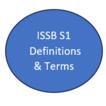
The International Sustainability Standards Board (ISSB) released two Sustainability disclosure standards on June 26, 20231. IFRS S1 is “General Requirements for Disclosure of Sustainability-related Financial Information.”
There’s nothing like reading primary documents. Who has the time? Even if you read the words – but what do they mean for your company? This post – one of a series – is intended to help preparers understand the standards, what’s required, and how to prepare to comply2. “Preparers” includes anyone at an executive level or senior management. It includes anyone in functions (Environmental, HR, IT, Operations, Procurement, etc.) that are responsible for programs, and/or who provide information for disclosures. (Read More)

Memo to those hoping that an SEC will not require disclosure of Scope 3 Greenhouse Gas (GHG) emissions in a final climate disclosure rule: It won’t matter. Your organization will need to calculate and report Scope 3 emissions. It will be a massive undertaking. Continuing to postpone effort much longer may cost you, in terms of direct costs and indirect impact on company value. Read to understand the folly of inaction.
SEC proposed climate disclosure rules in March 2022 – fifteen months ago, at this writing. Several provisions caused uproar and gnashing of teeth; perhaps none so much as the requirement to disclose Scope 3 greenhouse gas (GHG) emissions. Many have deferred meaningful efforts to compile Scope 3 emissions, often expressing three types of hope. (Read More)
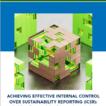
Doug Hileman is a primary author of “Achieving Effective Internal Controls over Sustainability Reporting (ICSR)” – supplemental guidance released by COSO. Douglas was the only non-CPA and the only ESG specialist among the six authors. This document will help bridge the divide between those who know internal controls (CFO, Accounting, Internal Audit) and those who don’t (Environmental, HR, Operations, Procurement, Real Estate, Safety … and everyone else). The download is available free here.
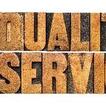
IIA’s GAM session was SRO, with more online. Doug and Edward Olson (Partner and [Canadian] National Leader for ESG) offered takeaways. Read more.

International Consortium of Investigative Journalists calls out KPMG. Social media provides thoughtful comments, including one about X-rays.
Doug says more.
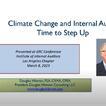
I'm pleased to be leading this info-packed session provides background and trends on climate-related risks for Internal Audit, their sponsors and stakeholders. Real-time attendees got CPE, but you can still (Watch Now)

The Federal Trade Commission’s Green Guides are intended to safeguard consumers from false or misleading claims in the products they buy. The FTC revises the Guides every 10 years, soliciting public comments. DHC advocates for more protection of consumers and ethical businesses alike. Read more.

Accountants are entering the fray for trustworthy ESG reporting and disclosures, says Financial Times. Much is driven by GHG emissions inventories, and the anticipated SEC rule for climate disclosures. Will they stop there? Should they? What can other functions learn from accountants – and vice versa? , Read More.

SEC Commissioners, Staff, and Stakeholders:
Douglas Hileman Consulting LLC (“DHC” pr “Commenter”) is pleased to provide comment on the SEC’s proposed rule on climate-related disclosures, released March 21, 2022. DHC submitted public input on June 7, 2021, responding to Commissioner Allison Herron Lee’s request for public input. DHC supported SEC actions on climate-related risk then, as we do now.
(Click Here)
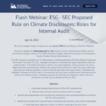
IIA Los Angeles Chapter (recorded)
This special webinar is a walk-through of the SEC Proposed Rule on Climate-Related Disclosures. An investment of ~37 minutes will make you conversant in all the key subjects of the proposal. Also with guest presenter Alexandre Rossin, President, Rossin International LLC. Watch here.

INTRODUCTION
The author suggests there are three core attributes of sustainability reporting that differ from financial reporting and disclosures.
Accountants, internal auditors, and assurance providers and others with experience in financial reporting and disclosures are becoming more involved in ESG reporting[1] and disclosures. There are already professionals who have involved in sustainability programs, reporting and reviews as they have evolved. Understanding these can help bridge the gap. It can also improve the effectiveness and efficiency of organization’s governance, strategy, risk management – as well as financial performance and positive impact in non-financial areas.